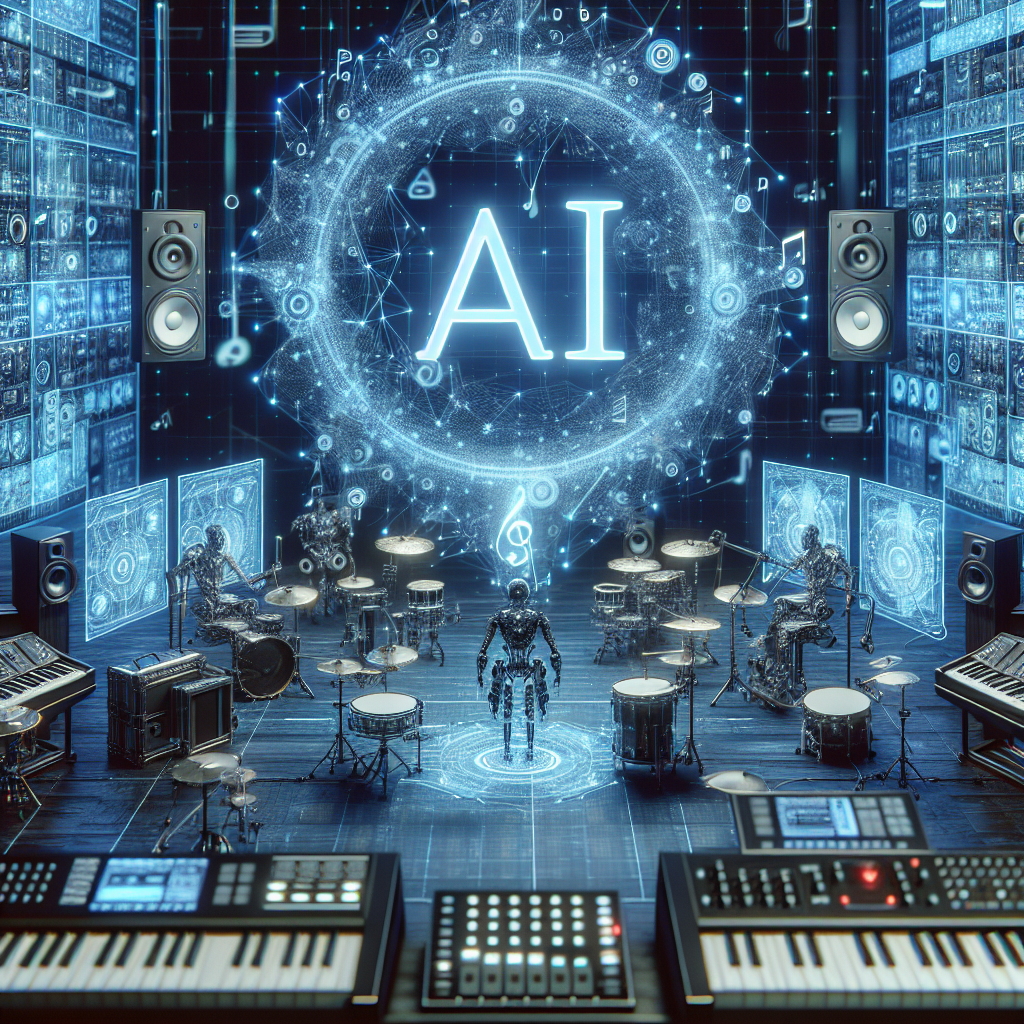In recent years, artificial intelligence (AI) has made significant advancements in the field of music composition. With the rise of algorithmic composition, AI has been able to create music that is both sophisticated and captivating, leading to a new era of creativity and innovation in the music industry.
Algorithmic composition is the process of using algorithms and computer programs to create music. These algorithms can analyze existing music compositions, recognize patterns, and generate new music based on these patterns. This allows for the creation of music that is unique and original, while also drawing on the rich history of music that has come before.
One of the key advantages of algorithmic composition is its ability to generate music at a speed and scale that would be impossible for a human composer to achieve. AI algorithms can produce vast amounts of music in a fraction of the time it would take for a human to do so, leading to a wealth of new music being created and explored.
AI algorithms can also help composers overcome creative blocks and explore new ideas and directions in their music. By analyzing patterns in existing music and generating new music based on these patterns, AI can inspire composers to think outside the box and push the boundaries of their creativity.
Another benefit of algorithmic composition is its ability to create music that is tailored to specific requirements or constraints. For example, AI algorithms can create music that fits a certain mood or emotion, or that is designed to accompany a specific visual or narrative. This level of customization and adaptability can be incredibly valuable for composers working on film scores, video game soundtracks, or other multimedia projects.
In addition to its creative potential, algorithmic composition also raises important questions about the nature of creativity and authorship in the digital age. As AI algorithms become more sophisticated and capable of creating music that is indistinguishable from human compositions, where does the line between human and machine creativity blur? How do we define the role of the composer in a world where algorithms can generate music on their own?
Despite these questions, the rise of algorithmic composition has been embraced by many musicians and composers as a valuable tool for exploring new creative possibilities. AI algorithms can be used to augment and enhance human creativity, rather than replace it entirely. By working in collaboration with AI, composers can push the boundaries of what is possible in music composition and create new and innovative work that is truly groundbreaking.
FAQs
Q: How does algorithmic composition work?
A: Algorithmic composition works by using algorithms and computer programs to analyze existing music compositions, recognize patterns, and generate new music based on these patterns. These algorithms can be programmed to follow specific rules and constraints, or to learn from existing music and create new music that is original and unique.
Q: Can AI algorithms create music that is as good as human compositions?
A: AI algorithms have made significant advancements in recent years and are capable of creating music that is sophisticated and captivating. While some may argue that AI compositions lack the emotional depth and nuance of human compositions, others believe that AI can create music that is indistinguishable from human compositions.
Q: How can composers use algorithmic composition in their work?
A: Composers can use algorithmic composition in a variety of ways, including generating ideas and inspiration, overcoming creative blocks, exploring new musical directions, and tailoring music to specific requirements or constraints. By working in collaboration with AI algorithms, composers can push the boundaries of their creativity and create new and innovative work.
Q: What are the ethical considerations of using AI in music composition?
A: There are a number of ethical considerations to take into account when using AI in music composition, including issues of authorship, ownership, and creativity. As AI algorithms become more sophisticated and capable of creating music that is indistinguishable from human compositions, questions arise about the role of the composer in the creative process and the impact of AI on the music industry.
In conclusion, the rise of algorithmic composition has opened up new possibilities for creativity and innovation in the music industry. By harnessing the power of AI algorithms, composers can explore new musical directions, overcome creative blocks, and create music that is truly groundbreaking. While there are important questions to consider about the nature of creativity and authorship in the digital age, the potential of algorithmic composition to revolutionize the way we think about music is undeniable.

